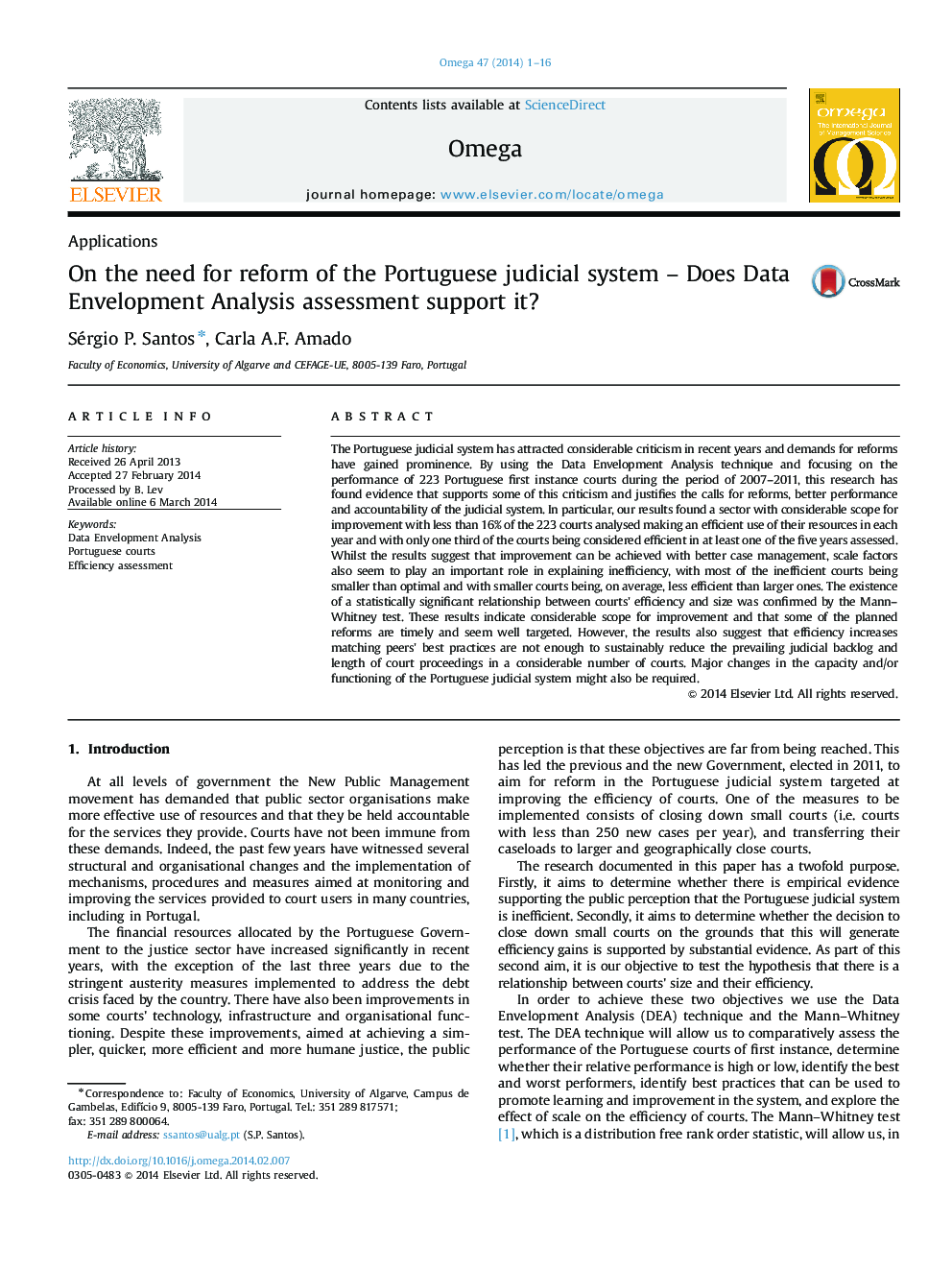| Article ID | Journal | Published Year | Pages | File Type |
|---|---|---|---|---|
| 1032731 | Omega | 2014 | 16 Pages |
•We propose a DEA model which considers the different nature and complexity of cases to assess courts’ efficiency.•There is evidence that less than 16 percent of the courts assessed are making an efficient use of resources.•There is a statistically significant relationship between courts’ efficiency and both their sizes and workforce compositions.•Efficiency increases matching peers' best practices are not enough to sustainably reduce the prevailing judicial backlog.•Major changes in the capacity and/or functioning of the judicial system are required.
The Portuguese judicial system has attracted considerable criticism in recent years and demands for reforms have gained prominence. By using the Data Envelopment Analysis technique and focusing on the performance of 223 Portuguese first instance courts during the period of 2007–2011, this research has found evidence that supports some of this criticism and justifies the calls for reforms, better performance and accountability of the judicial system. In particular, our results found a sector with considerable scope for improvement with less than 16% of the 223 courts analysed making an efficient use of their resources in each year and with only one third of the courts being considered efficient in at least one of the five years assessed. Whilst the results suggest that improvement can be achieved with better case management, scale factors also seem to play an important role in explaining inefficiency, with most of the inefficient courts being smaller than optimal and with smaller courts being, on average, less efficient than larger ones. The existence of a statistically significant relationship between courts׳ efficiency and size was confirmed by the Mann–Whitney test. These results indicate considerable scope for improvement and that some of the planned reforms are timely and seem well targeted. However, the results also suggest that efficiency increases matching peers׳ best practices are not enough to sustainably reduce the prevailing judicial backlog and length of court proceedings in a considerable number of courts. Major changes in the capacity and/or functioning of the Portuguese judicial system might also be required.
